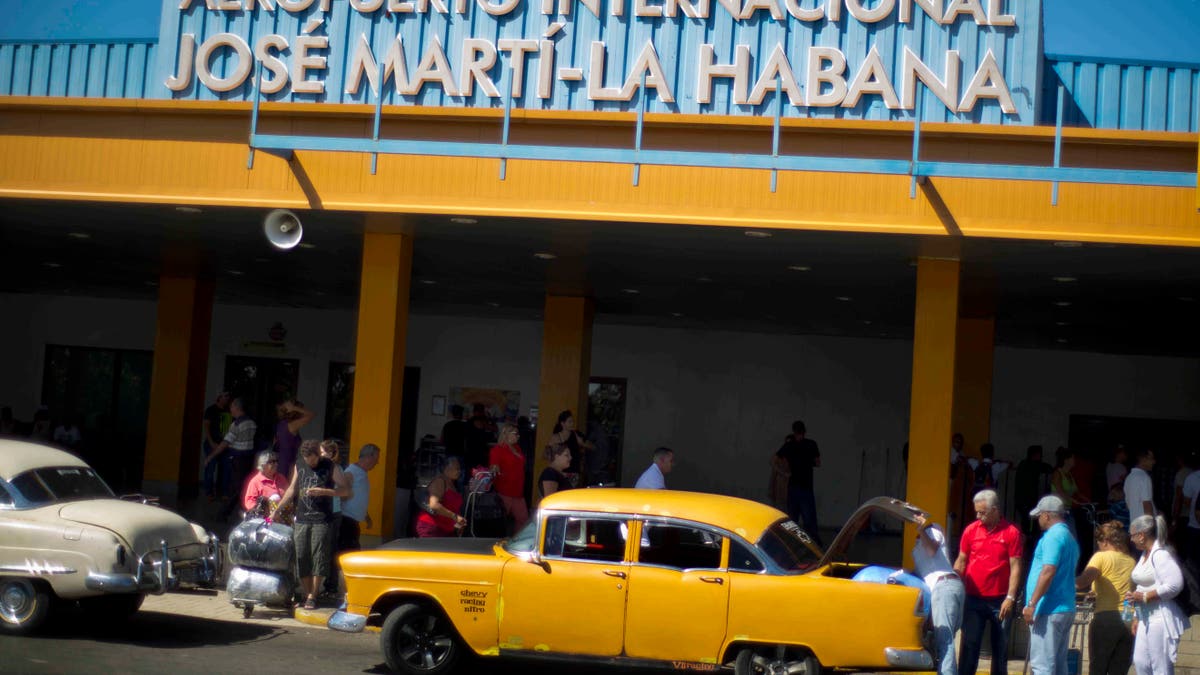
Jose Marti International Airport in Havana, Cuba, in a Sept. 1, 2014 file photo. (Copyright 2016 The Associated Press. All rights reserved. This material may not be published, broadcast, rewritten or redistribu)
HAVANA (AP) – More than 2 million tourists have visited Cuba this year, state media said Wednesday, putting the country on track for a record number of visitors bringing badly needed cash to an economy facing a sharp reduction in subsidized oil from its chief ally, Venezuela.
Tourism Minister Manuel Marrero said visitor numbers were running 12 percent ahead of those last year, which already saw a record number of tourists. The surge is credited to a wave of international interest in Cuba prompted by the announcement of U.S.-Cuba detente in Dec. 2014. Visitor numbers are expected to get a major boost after commercial flights from the United States begin this month.
The rise in tourism has strained Cuba's infrastructure, filling hotels to capacity and creating long waits at Havana's Jose Marti International Airport. The government announced Wednesday that Aeroports de Paris, the French government-controlled firm that runs Charles de Gaulle, Orly and other Paris airports, would receive a concession to operate Jose Marti, which would be renovated by the French firm Bouygues.
The announcement contained no details but updating the airport to receive hundreds of thousands more tourists a year will almost certainly become of the most important infrastructure projects in Cuba, and the largest French-Cuban deal since President Francois Hollande visited the island in May 2015.
A spokesman for Aeroports de Paris declined immediate comment.
Marrero said Cuba expects to receive 3.8 million tourists this year. Josefina Vidal, Cuba's head of U.S. relations, said on Twitter Wednesday that 138,000 Americans visited in the first half of 2016, an 80 percent increase that made the U.S. the second-largest source of visitors after Canada.
Cuba has become increasingly dependent on tourism as Venezuela has cut back on the supply of cheap oil sent in exchange for Cuban doctors to staff neighborhood medical clinics. President Raul Castro warned last month that the country faced sharply slower growth this year, and the economy expanded by a mere 1 percent in the first half of 2016.
Cuba has begun cutting back on energy use, primarily in government offices, where workers are being told to leave early and cut back on air conditioning.




















